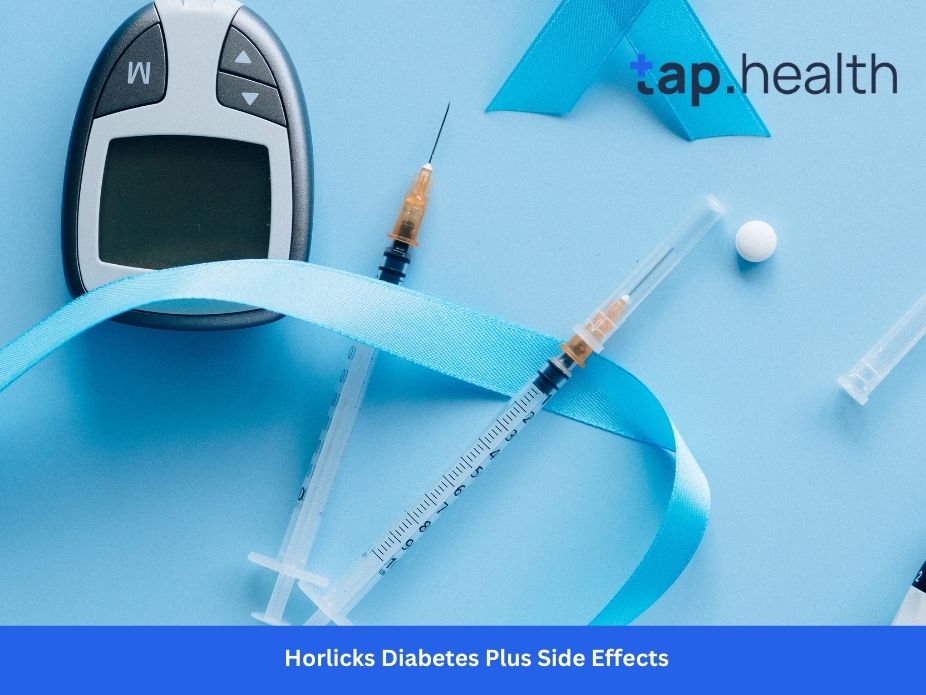Stomach aches are a common issue that can disrupt daily life. Whether caused by indigestion, stress, or dietary choices, most stomach pains can be managed at home with simple remedies. This blog explores fast-acting solutions, dietary adjustments, and warning signs that indicate when to seek medical help. By understanding the causes and applying these remedies, you can find relief from stomach discomfort in as little as five minutes.
Below, we’ll cover the best strategies to soothe stomach pain, including LSI keywords like abdominal pain relief, natural remedies for stomach ache, digestive health tips, and when to see a doctor for stomach pain.
Understanding Stomach Ache Causes
To effectively treat a stomach ache, it’s crucial to identify its cause. Common triggers include:
- Poor Dietary Choices: Spicy, greasy, or processed foods can irritate the stomach lining, leading to discomfort.
- Food Intolerances: Lactose or gluten intolerance may cause bloating, cramping, or pain.
- Stress and Anxiety: Emotional stress can manifest as physical pain in the abdomen.
- Gastrointestinal Issues: Conditions like gastritis, irritable bowel syndrome (IBS), or infections (e.g., Helicobacter pylori) can lead to recurring pain.
Types of Stomach Pain:
- Localized Pain: Felt in one area, possibly indicating issues like gastritis.
- Cramping Pain: Sharp, intermittent pain often linked to gas or IBS.
- Generalized Pain: Diffuse discomfort, typically caused by indigestion or gas buildup.
Understanding these causes helps you choose the right remedy for quick relief.
Fast-Acting Home Remedies for Stomach Pain
When a stomach ache strikes, these quick remedies can provide relief in minutes:
1. Deep Breathing for Abdominal Pain Relief
Deep breathing relaxes abdominal muscles and reduces discomfort. To practice:
- Sit or lie down in a comfortable position.
- Inhale deeply through your nose for 4 seconds.
- Exhale slowly through your mouth for 6 seconds.
- Repeat 5–10 times to ease tension and promote calmness.
This technique is particularly effective for stress-related stomach aches.
2. Best Positions to Relieve Stomach Pain
Certain positions can alleviate pressure on the abdomen:
- Lie on Your Back: Bend your knees to relax the stomach muscles.
- Left-Side Lying: Draw your knees toward your chest to aid digestion and reduce bloating.
3. Warm Compress for Stomach Discomfort
Applying heat can soothe cramps and bloating:
- Soak a towel in warm (not hot) water and wring it out.
- Place it on your abdomen for 5–10 minutes.
- The warmth relaxes muscles and improves blood flow, easing pain.
4. Herbal Teas for Digestive Health
Sipping herbal teas can calm the stomach and aid digestion:
- Peppermint Tea: Soothes nausea and reduces bloating.
- Ginger Tea: Reduces inflammation and eases indigestion.
- Drink 1–2 cups slowly to avoid overwhelming the stomach.
Staying hydrated with water or clear fluids also helps flush out toxins and supports digestion.
Dietary Changes to Prevent Stomach Aches
Preventing stomach aches starts with mindful eating. Here’s how to adjust your diet for better digestive health:
Foods to Avoid for Stomach Pain Prevention
Certain foods can trigger or worsen stomach aches:
- Spicy Foods: Irritate the stomach lining, causing discomfort.
- Greasy or Fatty Foods: Slow digestion, leading to bloating and cramping.
- Carbonated Drinks: Increase gas buildup, worsening pain.
- Caffeine and Alcohol: Contribute to indigestion and irritation.
- Processed Foods: High in additives, these can disrupt digestion.
If you have food intolerances (e.g., lactose or gluten), eliminate trigger foods from your diet.
Foods That Promote Digestive Health
Incorporate these gut-friendly foods:
- High-Fiber Foods: Fruits (e.g., apples, bananas), vegetables (e.g., carrots, spinach), and whole grains (e.g., oats, brown rice) support digestion and prevent constipation.
- Probiotic-Rich Foods: Yogurt, kefir, and fermented vegetables (e.g., sauerkraut) improve gut flora balance.
- Hydration: Drink plenty of water to aid food breakdown and maintain digestive regularity.
A balanced diet rich in fiber and probiotics can significantly reduce the frequency of stomach aches.
Over-the-Counter and Natural Remedies for Stomach Pain
For persistent or severe stomach aches, these options can provide quick relief:
1. Antacids for Indigestion Relief
Antacids neutralize stomach acid, easing symptoms of heartburn or indigestion.
- Follow the dosage instructions on the package.
- Consult a doctor if symptoms persist beyond a few days.
2. Probiotics for Gut Health
Probiotics restore gut flora balance, which may be disrupted during a stomach ache.
- Found in yogurt, kefir, or supplements.
- Regular intake can prevent future discomfort.
3. Ginger as a Natural Remedy
Ginger is a time-tested remedy for stomach issues:
- Brew ginger tea by steeping fresh ginger slices in hot water.
- Alternatively, chew a small piece of fresh ginger.
- Ginger reduces inflammation and soothes nausea.
4. Pain Relievers (Use with Caution)
Non-steroidal anti-inflammatory drugs (NSAIDs) like ibuprofen can reduce inflammation-related pain. However:
- Use sparingly, as NSAIDs may irritate the stomach lining.
- Follow dosage instructions and consult a doctor if unsure.
For mild stomach aches, try the BRAT diet (bananas, rice, applesauce, toast) to settle the stomach with bland, easily digestible foods.
When to Seek Medical Attention for Stomach Pain
While most stomach aches resolve with home remedies, some symptoms require immediate medical attention:
Recognizing Serious Symptoms
Seek a doctor if you experience:
- Severe, persistent pain that doesn’t improve.
- Persistent vomiting or nausea.
- Blood in stool or vomit.
- High fever (above 100.4°F or 38°C).
- Sudden weight loss or loss of appetite.
These could indicate serious conditions like appendicitis, ulcers, or infections requiring professional care.
Importance of Timely Medical Intervention
Delaying treatment for severe or recurring stomach pain can lead to complications. Regular check-ups with a healthcare provider can help monitor digestive health and catch issues early.
Proactive Steps for Long-Term Digestive Health
To minimize stomach aches and maintain a healthy digestive system:
- Identify Triggers: Keep a food diary to pinpoint foods or habits causing discomfort.
- Manage Stress: Practice relaxation techniques like yoga or meditation to reduce stress-related pain.
- Stay Active: Regular exercise promotes healthy digestion and reduces bloating.
- Schedule Check-Ups: Routine medical visits can detect underlying issues before they escalate.
By combining quick remedies with preventive measures, you can effectively manage and reduce stomach aches.
Expert Contribution: What Doctors Say
We looked at medical advice from top sources like the Mayo Clinic and NIH (National Institutes of Health) to see what medical experts recommend.
Dr. Hansaji Yogendra, a respected figure in holistic health, emphasizes that stomach health is often about how you eat, not just what you eat. Experts agree on these medical facts:
-
Hydration is Key: The NIH states that dehydration makes digestion difficult and painful. Water helps digest and absorb nutrients. If you have vomiting or diarrhoea, sipping water with electrolytes (ORS) is crucial to prevent dehydration.
-
Gut-Brain Connection: Doctors confirm that stress directly affects your stomach. High stress can slow down digestion or cause spasms. Practices like deep breathing can actually reduce stomach pain by calming your nervous system.
-
Probiotics Work: Medical reviews suggest that probiotics (good bacteria found in curd/yogurt) can help balance your gut health, especially after taking antibiotics.
Recommendations Grounded in Proven Research and Facts
Based on the research, here is a checklist for you to follow to prevent future pain:
-
Chew Your Food: Digestion starts in the mouth. Chew each bite thoroughly. This reduces the work your stomach has to do.
-
Don’t Lie Down Immediately: Wait at least 2-3 hours after a meal before going to bed. Lying down flat allows acid to leak back up, causing heartburn.
-
Limit “Trigger” Foods: High-fat foods (like fried snacks) delay stomach emptying, keeping you full and uncomfortable for longer. Spicy foods can irritate the stomach lining.
-
Fibre Balance: While fibre is good, eating too much fibre (beans, broccoli) suddenly can cause gas. Increase fibre slowly and drink plenty of water with it.
When to See a Doctor (Red Flags)
While home remedies are great for mild pain, some symptoms need professional medical help. Do not use home remedies if you have:
-
Sudden, very sharp pain specifically on the lower right side (could be Appendicitis).
-
Blood in your stool or vomit.
-
Unexplained weight loss.
-
Difficulty swallowing.
-
Pain that lasts more than a few days despite trying remedies.
-
High fever along with the pain.
If you experience these, please visit a hospital or clinic immediately.
FAQs About Stomach Ache Relief
What is the fastest home remedy for stomach gas?
The combination of Ajwain (carom seeds) and Black Salt is widely considered the fastest Indian home remedy. Chewing half a teaspoon of ajwain with warm water can provide relief within minutes by helping expel trapped gas.
Can drinking water stop a stomach ache?
Yes, often. If your pain is caused by dehydration or constipation, drinking warm water can help dissolve fats and move waste through your intestines. It also helps neutralize stomach acid.
Is curd (yogurt) good for stomach pain?
Yes. Curd contains probiotics (good bacteria) that are excellent for digestion. It is very soothing if you have loose motions or a burning sensation in the stomach. Avoid sour curd; fresh, sweet curd is best.
Which side should I lie on for stomach pain?
Lying on your left side is often recommended. This position prevents stomach acid from rising into the food pipe (reducing heartburn) and can help gravity move waste through your colon.
Is 7 Up or Sprite good for an upset stomach?
Not always. While carbonation might make you burp and relieve some pressure, the high sugar content can sometimes make diarrhoea worse. If you drink it, let it go “flat” (lose its fizz) first. Ginger ale or plain soda water with lemon is a better choice.
References:



